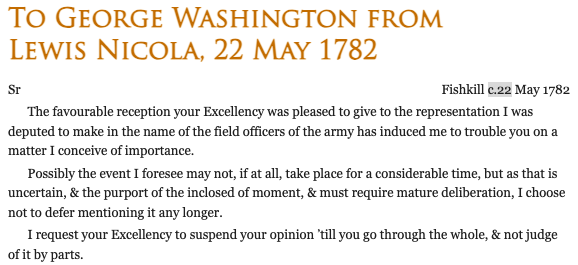National Archives Foundation: Archives Experience, A Republic, If You Can Keep It
Washington, DC
In September, the National Archives will present free public programs at the National Archives Museum in Washington, DC, at its Presidential Libraries nationwide and online. Programs this month include book talks with award-winning authors and live concerts as well as Civics for All of US offerings.
Removing the Crown
Welcome to the Archives Experience debut series: A Republic, If You Can Keep It. In celebration of Constitution Day, we’re chronicling the creation of this document — but these aren’t the stories we’ve all heard before. Instead, we’ll look at how the National Archives holdings show just how close we came to an entirely different form of government and how “We the People” triumphed in the end.
Our first attempt at self-governing was a failure. Eager to shed the absolute rule of monarchy, the Founding Fathers at first created a loose association of states, technically under one government, but not at all united.
As a result, some thought the pendulum had swung too far. By the time the Founders gathered to address the shortcomings of the Articles of Confederation, some of them were back to advocating for a monarch to and set us on the right course.
This is the story of how the United States avoided instituting monarchy…
The Magna Carta, the charter of liberties granted by King John of England in 1215, is the foundation of individual rights in Anglo-American law. Agreed upon in June of that year at Runnymede, the document affirmed that the king was subject to the charter and that if he did not conform to its clauses, his barons were authorized to declare war on him. The Magna Carta represented the English barons’ first step toward demolishing the principle of vis et voluntas, or “force and will,” by which the English monarch had reigned up until that point. Thus it was established that the king was subject to the laws of men, rather than ruling by absolute power.
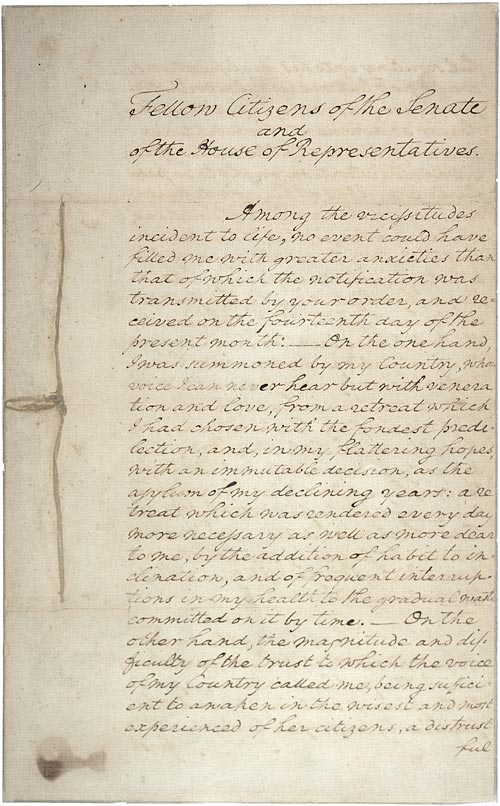
George Washington’s inaugural address
NARA’s Milestone Documents
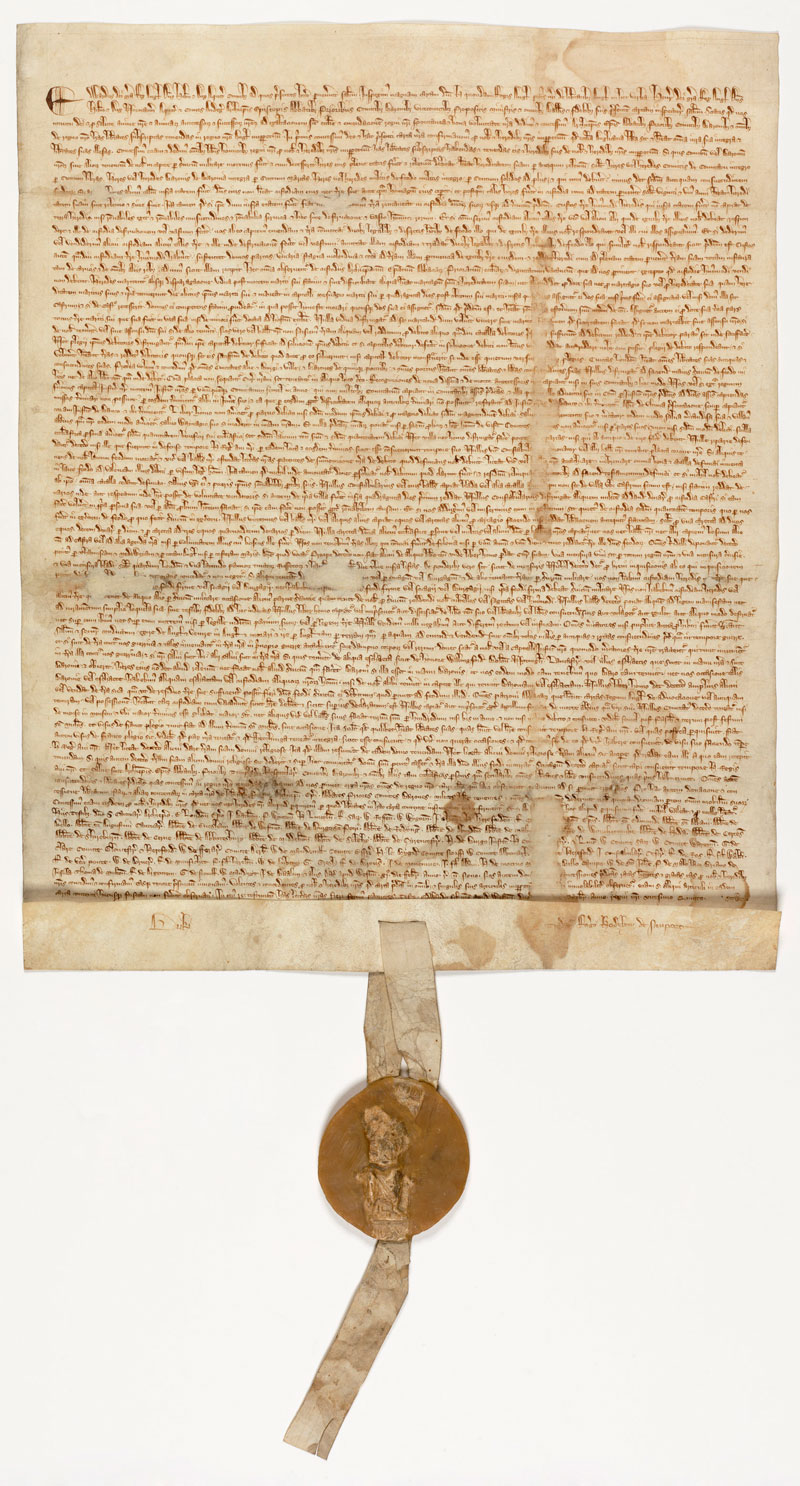
Magna Carta
NARA’s Milestone Documents
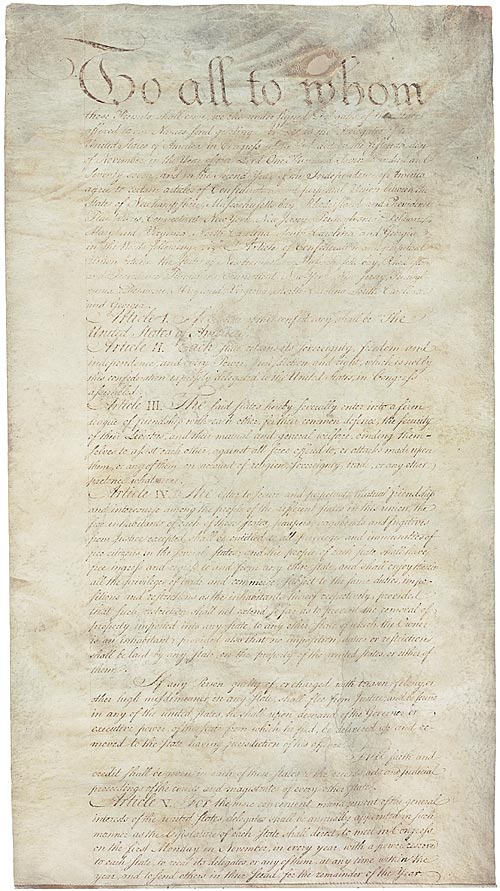
Articles of Confederation
NARA’s Milestone Documents
When the American colonists revolted against the tyranny of the British crown, they chose George Washington to lead the Continental Army. Aged 43 when he accepted his command, Washington had already played many different roles—soldier, scholar, gentleman, land surveyor, planter, slave owner, legislator, and Virginian, which means, above all, he was an aristocrat. He led the army in the fight against the British from 1775 until the Revolutionary War ended in 1783.
On May 22, 1782, after the British had surrendered at Yorktown but before the Treaty of Paris had been finalized, one of Washington’s officers, Lewis Nicola, wrote him a letter proposing that he become king of the new nation. Nicola reasoned that the nations that had attempted a republican form of government—Venice, Genoa, and Holland—had not been successful, while monarchies such as Britain had worked out rather better. We do not have a record of the general’s reply, but we do know of his actions, which speak louder than words. George Washington most emphatically did not want to become King George I of America.
On December 4, 1783, Fraunces Tavern on Broad Street in New York City hosted an elaborate dinner for General George Washington, at which he bade his fellow officers farewell. He then traveled by horseback to Annapolis, Maryland, where the Continental Congress was meeting. On December 23, he addressed the congress and formally resigned his military commission, handing over the original document, which was dated June 15, 1775, to the assembled delegates. Many who witnessed this event wept.
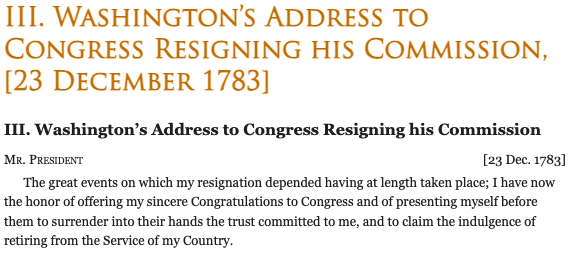
Washington’s Address to Congress Resigning His Commission–December 23, 1873
NARA’s Founders Online
More Articles
- Journalist's Resource: Religious Exemptions and Required Vaccines; Examining the Research
- Jo Freeman: How to Debate a Bully
- Supreme Court Surprises The Public in LGBTQ Ruling: What is Sex Discrimination?
- The Uber and Lyft of Dog Walking Fight State Oversight
- An Example of Whistleblower Rights and Protections from the US Department of Justice
- Going Forth On the Fourth After Strict Blackout Conditions and Requisitioned Gunpowder Had Been the Law
- Swedish Parental Leave Policies: Parents are Entitled to 480 Days of Paid Parental Leave When a Child is Born or Adopted
- If You're Looking For A Link To the Mueller Report, Look No Further
- GAO: A Comprehensive Re-evaluation Needed to Better Promote Future Retirement Security
- GAO, VA Health Care: Improvements Needed in Suicide Prevention Media Outreach Campaign Oversight and Evaluation








